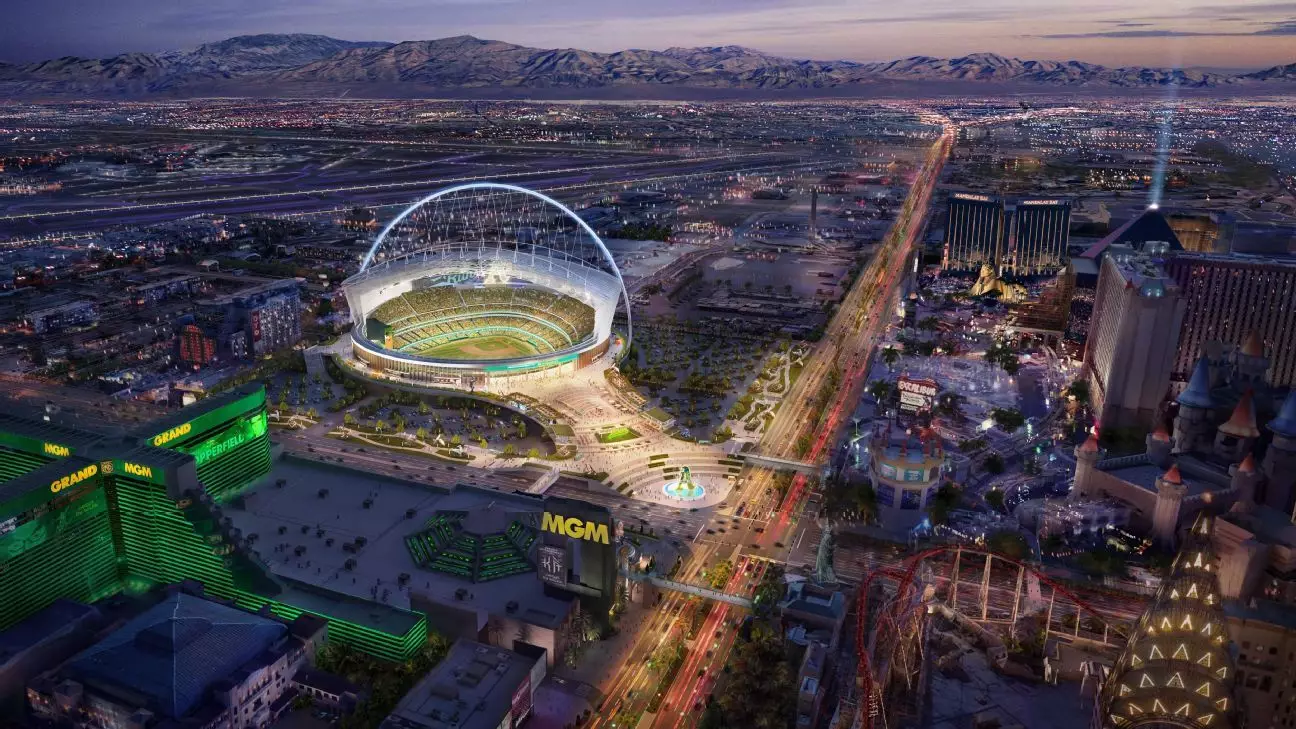In a landmark decision, the Las Vegas Stadium Authority has taken significant steps towards establishing Major League Baseball (MLB) in Las Vegas by approving a lease and non-relocation agreements for the Oakland Athletics. The agreements pave the way for a $1.75 billion stadium project on the iconic Las Vegas Strip, a development that promises to enhance the already dynamic sports culture in the city. With the lease and non-relocation commitments spanning 30 years, this decision marks a defining moment for both the franchise and the city, reinforcing Las Vegas’s growing identity as a premier sports destination.
Steve Hill, the CEO of the Las Vegas Convention and Visitors Authority, emphasized the importance of this milestone. His remarks underscored the collaborative efforts that led to this achievement, a sentiment that resonated with attendees who celebrated this pivotal occasion in the city’s athletic history.
Despite the celebratory mood, several logistical details remain in flux. The Athletics and Clark County are currently negotiating a development agreement, which is crucial for the project to move forward. Groundbreaking is tentatively scheduled for spring, aiming for a completed stadium by the 2028 season. These ambitions, however, come with challenges; rising inflation has increased the overall costs of the stadium project by $250 million, prompting the Athletics to enhance several fan and player amenities. Features such as an innovative under-seat cooling system, and a split lower bowl designed to bring spectators closer to the action, are pivotal improvements directly responding to fan experience needs.
Team board member Sandy Dean acknowledged the financial volatility that comes with such a project, noting the outright potential for further rises in costs due to interest rate fluctuations. With a commitment to maintaining a world-class stadium, Dean assures that, while managing expenses will be a priority, the A’s strive to create a ballpark that exceeds expectations.
Public funds amounting to $380 million, sourced from Nevada and Clark County, will underwrite a significant portion of the stadium’s financing. However, this support is contingent upon the A’s meeting certain benchmarks, namely spending a minimum of $100 million before public funds are utilized. Thus far, the franchise has injected $40 million into the project, demonstrating their commitment. Furthermore, club owner John Fisher has pledged an increased financial commitment of $1.1 billion from his family’s wealth.
A financial safety net exists, with a $300 million loan lined up from U.S. Bank and Goldman Sachs, giving the A’s additional assurance regarding their investment capabilities. This financial backing provides a framework that can sustain the project’s needs even without external investors. However, the commitment falls on the A’s to absorb any additional costs, a stipulation firmly outlined by Hill.
Transitioning Away from Oakland
The transition to Las Vegas represents a transformational phase for the Oakland Athletics, who are currently expected to play out their next three seasons in a minor league ballpark in West Sacramento, California. After 57 seasons in Oakland, this shift signifies not only a change in geography but also a renewed opportunity for growth and engagement in a vibrant market. This move follows the Athletics’ recent history and marks an exciting new chapter, inviting a fresh fan base that is eager to embrace MLB’s latest expansion.
Adding a professional baseball team to Las Vegas’s sports roster—already home to the NFL’s Raiders, NHL’s Golden Knights, and the WNBA’s Aces—will significantly enrich the region’s sports culture. The Golden Knights and Aces have already made an impact, with a combined three championships in recent years, setting a hopeful precedent for the A’s to follow.
The approval of the lease and development agreements marks an unprecedented shift in Las Vegas’s sports landscape, heralding Major League Baseball’s expansion to a city poised for athletic growth. The commitment from the Athletics’ ownership, the substantial public investment, and the community’s enthusiastic support intertwine to create an optimistic narrative for the future of baseball in Las Vegas. As the city gears up for the groundbreaking of a state-of-the-art stadium, all eyes will be on how this vibrant locale continues to evolve its identity as an unparalleled sports destination.


Leave a Reply